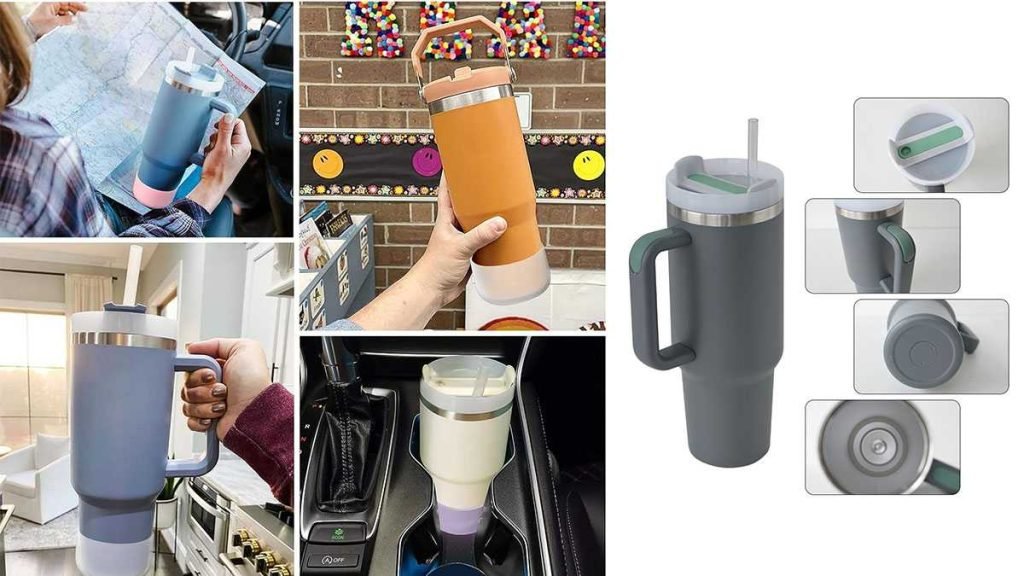A foul smell coming from your coffee maker can ruin your morning routine and make even the best brew unappetizing. Fortunately, a quick cleaning and some simple maintenance can eliminate those unpleasant odors and restore your machine’s fresh, inviting scent. In most cases, the bad smell is caused by built-up mold, leftover coffee residues, or mineral deposits that have accumulated over time. Regular cleaning with vinegar or a specialized descaler can prevent these odors from developing. Also, keeping the machine dry and well-maintained ensures your coffee always tastes great and smells fresh. By understanding the main causes of odor and knowing easy cleaning methods, you can enjoy a perfectly brewed cup without any unpleasant surprises.
Why Your Coffee Maker Smells Bad and How to Clean It
Understanding Why Your Coffee Maker Smells Bad
Many people notice a foul odor coming from their coffee maker after a few uses. This smell can make your morning coffee less appealing and affect the taste. Usually, bad smells are caused by buildup of mineral deposits, old coffee residues, or mold.
Over time, minerals from hard water, such as calcium and magnesium, accumulate inside the machine. These deposits create an environment where bacteria and mold can thrive. Additionally, leftover coffee oils and grounds can become rancid, adding to the unpleasant smell.
Common Causes of Bad Odors in Coffee Makers
- Mineral Buildup: Hard water leaves mineral deposits inside the machine, especially in the water reservoir and heating element.
- Old Coffee Residue: Used coffee grounds and spilled liquid can stick to surfaces if not regularly cleaned.
- Moisture and Mold: Damp conditions inside the machine promote mold growth, producing musty smells.
- Infrequent Maintenance: Skipping regular descaling or cleaning leads to accumulation of odor-causing substances.
The Impact of Hard Water on Your Coffee Maker
Hard water is a major factor in bad smells. Its mineral content leaves deposits that can block water flow and reduce the efficiency of your machine. These deposits often trap bacteria and mold, worsening odors.
Using soft or filtered water can significantly reduce mineral buildup. Regular descaling removes existing deposits, preventing odors caused by mineral accumulation.
How Residual Coffee Oils Contribute to Odors
Coffee oils tend to stick to the internal parts of the machine. When not cleaned properly, these oils turn rancid, emitting a sour or stale smell. Over time, they form a film that traps debris and bacteria.
To prevent this, it’s important to clean all removable parts regularly. Running a cleaning cycle with vinegar or a commercial descaler can dissolve these oily residues.
Signs Your Coffee Maker Needs Cleaning
If your coffee starts to taste off or if you detect a bad smell, it’s time for a thorough cleaning. Other signs include visible mineral deposits, slow brewing process, or mold spots inside the reservoir.
Ignoring these signs can impair your coffee’s flavor and may even damage the machine over time. Regular maintenance helps keep your coffee maker in optimal condition.
Effective Ways to Clean Your Coffee Maker
Cleaning your coffee maker involves more than just rinsing. Here are step-by-step methods to eliminate odors and maintain your machine’s performance.
Using Vinegar for Descaling and Deodorizing
Vinegar is a natural and affordable cleaning agent. It dissolves mineral deposits and kills bacteria and mold.
- Fill the water reservoir with equal parts white vinegar and water.
- Run a brew cycle without coffee grounds.
- Once complete, run two or three cycles with plain water to rinse out the vinegar.
- Wipe the exterior and removable parts with a damp cloth.
Commercial Descaling Products
For machines with heavy buildup, specialized descaling products are more effective. Follow the manufacturer’s instructions for best results.
Cleaning Removable Parts
Remove the filter basket, carafe, and water reservoir. Wash these parts with warm soapy water. Use a soft brush to scrub away any residue.
Deep Cleaning the Coffee Maker
Perform a weekly deep clean to prevent odors. Use vinegar or descaling solutions periodically. Don’t forget to clean the filter basket and drip tray to remove coffee oils.
Preventive Tips to Keep Your Coffee Maker Fresh
- Use filtered or soft water to reduce mineral deposits.
- Clean your machine after every few uses to prevent residue buildup.
- Run a vinegar cycle monthly for maintenance.
- Replace water filters regularly if your machine has one.
- Store the machine in a dry, well-ventilated area to avoid mold growth.
- Avoid leaving used coffee grounds in the filter for too long.
Additional Tips for Maintaining a Smell-Free Coffee Maker
Maintain good hygiene by wiping down external surfaces with a damp cloth. Keep the area around your machine clean and dry. Also, ensure the water reservoir is completely dry when not in use.
Regularly inspecting your machine for mold or yeast helps catch issues early. Proper storage and routine cleaning are key to keeping odors at bay.
Related Topics
How to Choose the Right Coffee Maker
Consider models with removable parts and easy cleaning features. Machines with water filters help reduce mineral buildup.
What’s the Best Coffee Filter for Your Machine?
Use paper filters to trap oils and residues. Reusable filters should be cleaned regularly to prevent odors.
Tips for Brewing Better Coffee
Use fresh, filtered water and clean your machine often. This ensures your coffee tastes fresh and eliminates lingering smells.
The Best Way To Clean Your Coffee Maker
Frequently Asked Questions
What causes a coffee maker to develop a bad odor?
A foul smell in your coffee maker often comes from leftover coffee oils, mineral deposits, or mold developing inside the machine. When these residues are not cleaned regularly, bacteria and mold can thrive, leading to unpleasant odors. Using old or stale water can also contribute to the smell, as it fosters bacterial growth within the water chamber.
How often should I clean my coffee maker to prevent bad smells?
It is best to clean your coffee maker at least once every one to two months. If you use your machine daily, more frequent cleaning—such as weekly descaling—can help prevent build-up and keep odors away. Regular cleaning ensures that mineral deposits and residues don’t accumulate, maintaining fresh-tasting coffee and a clean machine.
What is the best way to eliminate persistent odors from my coffee maker?
To remove stubborn smells, run a cleaning cycle using a mixture of equal parts water and white vinegar. Afterward, run two cycles with clean, plain water to rinse out any vinegar residue. This process effectively breaks down mineral deposits and kills mold or bacteria causing the odor. For added freshness, you can also wipe down removable parts with a mild soap solution and dry them thoroughly.
Are there specific cleaning products that help keep my coffee maker smelling fresh?
Yes, there are commercial descaling agents and cleaning tablets designed specifically for coffee machines. These products effectively remove mineral build-up and bacteria that cause bad odors. Always follow the manufacturer’s instructions when using these products to ensure safe and thorough cleaning. Additionally, occasional use of baking soda diluted in water can deodorize your machine naturally.
Can using filtered water reduce odors in my coffee maker?
Using filtered or bottled water instead of tap water can significantly decrease mineral deposits and impurities that cause unpleasant smells. Filtered water reduces the likelihood of scale buildup inside your machine, which helps maintain a cleaner, fresher aroma every time you brew coffee.
Final Thoughts
Why your coffee maker smells bad and how to clean it is a common concern. Regular cleaning prevents mold and bacteria buildup, which cause unpleasant odors. Use a mixture of vinegar and water to run a brewing cycle, then rinse thoroughly. This simple step keeps your machine fresh and your coffee tasting great. Proper maintenance ensures your coffee maker stays odor-free and functional over time.
As an Amazon Associate, We earn from qualifying purchases. When you purchase a product through Amazon links on kitchenadvising.com, we may earn a small commission at no extra cost to you. This helps support the site and keep our content free.


